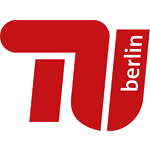Difference between revisions of "Team:Berlin/Practices"
Jpalbrecht (Talk | contribs) |
Jpalbrecht (Talk | contribs) |
||
| Line 187: | Line 187: | ||
Our participation definitely clarified some points and misunderstandings. he audience asked in detail about the degradation of plastics and the products that are resulting of this process. This allowed us to pitch our idea of a modular filter unit in detail. The public was invited | Our participation definitely clarified some points and misunderstandings. he audience asked in detail about the degradation of plastics and the products that are resulting of this process. This allowed us to pitch our idea of a modular filter unit in detail. The public was invited | ||
to visit the lab anytime and also to help us in anyway from web designing to fund raising.<br/> | to visit the lab anytime and also to help us in anyway from web designing to fund raising.<br/> | ||
| − | + | </div> | |
<img style="max-heigth:650px; max-width:450px;" src="https://static.igem.org/mediawiki/2015/e/ef/Team_Berlin_Science_Cafe_1.jpeg"/> | <img style="max-heigth:650px; max-width:450px;" src="https://static.igem.org/mediawiki/2015/e/ef/Team_Berlin_Science_Cafe_1.jpeg"/> | ||
<img style="max-heigth:650px; max-width:450px;" src="https://static.igem.org/mediawiki/2015/a/ab/Team_Berlin_Science_Cafe_2.jpeg"/> | <img style="max-heigth:650px; max-width:450px;" src="https://static.igem.org/mediawiki/2015/a/ab/Team_Berlin_Science_Cafe_2.jpeg"/> | ||
| Line 193: | Line 193: | ||
<img style="max-heigth:650px; max-width:450px;" src="https://static.igem.org/mediawiki/2015/d/d0/Team_Berlin_Science_Cafe_3.jpeg"/> | <img style="max-heigth:650px; max-width:450px;" src="https://static.igem.org/mediawiki/2015/d/d0/Team_Berlin_Science_Cafe_3.jpeg"/> | ||
<img style="max-heigth:650px; max-width:450px;" src="https://static.igem.org/mediawiki/2015/a/ac/Team_Berlin_Science_Cafe_4.jpeg"/> | <img style="max-heigth:650px; max-width:450px;" src="https://static.igem.org/mediawiki/2015/a/ac/Team_Berlin_Science_Cafe_4.jpeg"/> | ||
| − | + | ||
</div> | </div> | ||
Revision as of 16:59, 18 September 2015
SOCIAL
SciArt Café
Berlin is a colourful and creative place. It is a focal point for the international techno-science art community with venues such as the transmediale, the CTM, the STATE festival, re:publica and many more. Including this vibrant biotech-philiac community was a must-have for iGEM Berlin. For this we organized a Science Café event - the SciArt Café - bringing together synthetic biologists, bio-artists, biohackers and anthropologists in one unique format.Having an open format such as the Scienc Café makes space for in-depth discussions. After listening to four speakers a heated and emotional discussion took place and focused on re-emerging issues such as dual-use, biosecurity, patents, corporate ethics and the relevance of the scientific methods for arts.

The event was held in the heart of Berlin (Betahouse – Coworking space in
Kreuzberg) on August 7 2015 and organized in collaboration with Biofaction.
Four presentations from different fields, including the iGEM Berlin Enzymatic Flagellulose, xenobiology, sculpturing with slime moulds and behavioral primate sciences/anthropology madethis event a very special one.
We showed and discussed our projects with a language easy for a non-scientific audience to comprehend. We focused on addressing the issue of microplastics and the alarming threat that they represent to human health. Additionally, we talked about how genetic engineering help us be more efficient and generate either enzymes, proteins or products that are usually difficult to access and produce. We made a clear emphasis on the importance of good scientific practices when it comes to handling genetically modified organisms. Although the audience have heard about them before, some points needed to be clarified for the public to understand that in our proceedings there is no threat to either biodiversity, environment or human health.
Moreover, we talked about how important it is to remain “inter- or transdisciplinary” in science. By presenting the different members of our team and their diverse academic backgrounds we stressed the fact that solution can only be achieved through collaboration from different fields.
The audience was very happy to obtain first hand information from researchers working on topics that concern the society and the government. The main feedback from the audience focused on how good it is to make science accessible to the public and how important it is to explain complex methods in a visual way.
Our participation definitely clarified some points and misunderstandings. he audience asked in detail about the degradation of plastics and the products that are resulting of this process. This allowed us to pitch our idea of a modular filter unit in detail. The public was invited to visit the lab anytime and also to help us in anyway from web designing to fund raising.
We showed and discussed our projects with a language easy for a non-scientific audience to comprehend. We focused on addressing the issue of microplastics and the alarming threat that they represent to human health. Additionally, we talked about how genetic engineering help us be more efficient and generate either enzymes, proteins or products that are usually difficult to access and produce. We made a clear emphasis on the importance of good scientific practices when it comes to handling genetically modified organisms. Although the audience have heard about them before, some points needed to be clarified for the public to understand that in our proceedings there is no threat to either biodiversity, environment or human health.
Moreover, we talked about how important it is to remain “inter- or transdisciplinary” in science. By presenting the different members of our team and their diverse academic backgrounds we stressed the fact that solution can only be achieved through collaboration from different fields.
The audience was very happy to obtain first hand information from researchers working on topics that concern the society and the government. The main feedback from the audience focused on how good it is to make science accessible to the public and how important it is to explain complex methods in a visual way.
Our participation definitely clarified some points and misunderstandings. he audience asked in detail about the degradation of plastics and the products that are resulting of this process. This allowed us to pitch our idea of a modular filter unit in detail. The public was invited to visit the lab anytime and also to help us in anyway from web designing to fund raising.




Thanks to

















 SOCIAL
SOCIAL